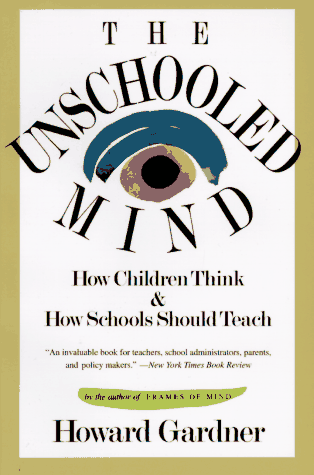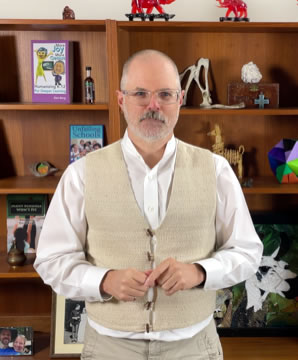What is the best philosophy of education for educational equity?
Philosophy of education is a vast field with an overwhelming number of controversies: traditional or progressive, teacher-centered or student-centered, phonics or whole language, just to name a few popular ones.
It is not practical to identify a single best philosophy of education for the purpose of achieving educational equity; however, it is possible to narrow the field, to eliminate bad ones.
I ask for your patience as I reframe this challenge from the perspective of Catalytic Pedagogy.
Catalytic Pedagogy is a perspective and data model that may help fulfill the aspirations of proper educational philosophies.
Given that it does not prescribe any particular institutional form to support instruction, Catalytic Pedagogy is not, in itself, properly regarded as a “philosophy of education.”
The only requirement of a Catalytic Pedagogy is concessions to the psychological realism upon which it is built.
No reasonable parent would send their most beloved child to a school that suffocates, dehydrates, starves, or recklessly exposes students to the elements.
The legal doctrine of in loco parentis must surely imply that any school practice that compromises the well-being of the children in a school’s care must be rejected.
(For more on in loco parentis click here)
A philosophy of education that promotes harmful school practices is incoherent, if not downright immoral, and therefore should be disregarded.
Psychological realism is the means of rejecting some philosophies of education, some of which may be quite common in schools these days.
For instance, acting on the idea of a developmental imperative is effectively carte blanche to do whatever it takes to make the children in that developmental stage experience that “imperative.”
Unfortunately, if the developmental imperative that is identified is, in fact, an incorrect one, then that “imperative” can lead to harmful practices.
Specifically, any philosophy of education that causes a pervasive pattern of disengagement should be rejected.
A pervasive pattern of disengagement indicates that the primary psychological needs of a large proportion of the children in that system are being systematically thwarted or neglected.
The neglect and/or thwarting of primary psychological needs is a direct cause of declines in well-being, thus a pervasive pattern of disengagement in a school system is an indirect indicator that too many children are experiencing psychological harms.
Downgrade Symbolic Mastery in Your Philosophy Of Education

The mainstream practices of schooling worldwide appear to be based on a philosophy of education that assumes that symbolic mastery (characterized by literacy and numeracy activities) is a developmental imperative of primary school-age children.
Throughout the world teachers regularly engage in coercing children into engaging with literacy and numeracy activities, ranging from the subtle to the obvious, which can only be morally justified by being designated as a developmental imperative; thus inherently “good for them.”
However, the mainstream of schooling is also characterized by exactly the kind of pervasive pattern of disengagement that requires, on the basis of every school’s in loco parentis responsibilities, a rejection of that philosophy of education.
(For a summary of some of the evidence for that pattern of disengagement read the introduction to my book Schooling For Holistic Equity, pp. xvi-xix.)

In his 1999 book The Unschooled Mind, Howard Gardner, the creator of Multiple Intelligences Theory and a Professor at Harvard, talked about the consensus that was arrived at by the early theorists in human development.
“Once the importance of symbols had been recognized within the academy, researchers concerned with human development reached a consensus that [the primary school years are] best termed a time of 'symbolic mastery.'
“Such otherwise disparate scholars as Jean Piaget, Heinz Werner, Alexander Luria, and Jerome Bruner would all concur with this characterization.
“Indeed, so great is the consensus that one wonders whether possibly everyone may INEXPLICABLY have overlooked some competing issue.” (emphasis added, p. 58)
What they overlooked was governance and the agency that is necessary for humans to enact it.
Defining education as achieving a better grasp of reality removes literacy and numeracy (a.k.a. symbolic mastery) from the list of defining features of schooling.
Improving our grasp of reality, as a definition of the schooling enterprise, renders the mainstream assumption, and the centrality of symbolic mastery that follows from it, illogical.
One necessary entailment of that symbolic mastery assumption is that in the tens of thousands of years of human existence before literacy and numeracy were created there were no educated people, this is absurd.
On the other hand, it makes an abundance of sense that all six to twelve year old children would have an evolved capacity to learn how to govern their own and other people’s behavior, thus governance is far more likely as a developmental imperative.
In my book, The Agentic Schools Manifesto, I use the term “agency” to talk about the way that individual humans interact with governance.
In English, the word “agent” connotes both the individual ability to take action and the fact that an individual always simultaneously and inescapably represents one or more collectives.
Symbolic mastery may be a useful tool for good governance, but what kids need to master is how to skillfully manage their own and other people's behavior.
It makes no difference within Catalytic Pedagogy what institutional arrangements nor which tools are used to support that imperative (and academics are merely a tool).
The goal of Catalytic Pedagogy is to enable schools to achieve Holistic Equity, which is the situation in which the entire population of people in a school have their primary and particular human needs systematically satisfied.
It is only through systematic satisfaction of needs that children’s well-being is assured and their learning can be as deep as possible.
One of the key mechanisms for achieving Holistic Equity is to pass a resolution that acknowledges the crucial role that psychological needs play in supporting well-being and learning.
I shared this type of resolution in chapter 24 of my book Schooling for Holistic Equity.
The resolution has to be accompanied by funding and followed up with more binding policy actions that will legally protect innovative programs from undue interference as long as they produce appropriate results.
The appropriate results are measured by data on depth of engagement, patterns of motivation, and primary need satisfaction, the Catalytic Pedagogy data model.
The three principles for organizational change are expressed as Back-to-Basics 2.0, which is the title of Chapter 5 of Schooling for Holistic Equity.
1. Teach governance before academics (more self-management, less bureaucracy).
2. Manage for engagement, not obedience (facilitate deeper learning).
3. Improve citizenship with need support (when it gets hard, provide more support, not less).
The only commitment required of a philosophy of education that aims to apply Catalytic Pedagogy is realism, which necessarily entails respect for the science of psychology.
I will presume you are a realistic educator committed to an equally realistic educational institution that shapes daily practices according to a philosophy of education that is also realistic.
To my way of thinking this means that you should be able to apply the Catalytic Pedagogy data model as a means to achieve Holistic Equity for your entire school community.
Foundations Of My Philosophy of Education

Returning to the question in the title, the best philosophy of education for achieving educational equity is a realistic one, regardless of what other rhetorical bells and whistles might be attached to it.
The challenge is to ensure that you and the school to which you are committed practice the realism that is embedded in your philosophy of education.
The works that I take to be most essential to my understanding of realism are Philosophy in the Flesh and The Case Against Reality.
Philosophy in the Flesh was written by cognitive linguist George Lakoff and philosopher Mark Johnson to explain their ideas about Embodied Realism.
The Case Against Reality is a book written by perceptual psychologist Donald Hoffman to explain his idea of Conscious Realism and his Interface Theory of Perception.
Hoffman's prior book Visual Intelligence covers similar territory but in more technical terms.
The most important point made by all of these authors is that reality is hidden.
It is not at all obvious to our senses that the earth is spherical, that living things are all made of cells, or that the colors we perceive in the world are mostly generated by our minds.
Realism, therefore, requires a system of self-correcting social proof in order to overcome both the inherent hiddenness of reality and the various bias and heuristics that tend to make individual thought processes potentially deceptive and make, over the long run, group actions potentially self-defeating.
According to Hoffman, “Science is not a theory of reality, but a method of inquiry.
“It orchestrates the better angels of our nature to promote reason, precision, productive dialog, and an appeal to [replicable] evidence.
“It curbs our proclivity for the vague, deceptive, dogmatic, and imperious.
“Inquiry into any question that captures the human imagination ... deserves no less than the full benefit of this orchestration.”
Science is the most robust means we have developed to propose, test, and accept or reject ideas about how things work.
Despite scientists commonly assuming they are engaging directly with reality, that narrative is technically incorrect, despite being quite useful as a shorthand.
What my favored philosophers point out in their books is that science itself revealed the fact that its most treasured ideas are not literal descriptions of reality.
Science is built upon offering up imaginative descriptions of phenomena which are tested according to their ability to enable other folks to either A) point out logical, procedural, and other flaws with the description, or B) replicate the situation that was originally described.
The more likely it is that others can replicate the results, the more likely it is that the description is a valuable contribution to a shareable, collectively valuable understanding.
Lakoff and Johnson pointed out how cognitive science has discovered that most concepts we humans use are metaphorical, even though we mistakenly believe many of them to be literal.
We all share some set of literal concepts due to how our bodies interact with the world.
The vast majority of our concepts, however, are imaginative remixes of the abstract cognitive structures that we borrow from our collection of literal concepts.
For example on my definition of education page I propose that the term “education” has a literal core meaning and that the metaphoric extensions we use to think about schooling should be constrained by that core.
Science consists of ever more elaborate means of generating metaphorical descriptions that are experimentally compared to judge how apt they are as descriptions of the phenomena in question.
The goal is to approach ever better descriptions of the causal structure of that hidden reality.
Notice that the goal is not to arrive at a final and complete understanding.
That is impossible.
The purpose is to enable more and more people to get better at effectively pursuing their own goals with the expectation that the accumulation of successes will eventually generate better, more robust models of the hidden structure of causality.
But ultimately, the overarching purpose is merely to attain ever more reliable means of pursuing meaningful human goals.
Any notions that the resulting descriptions are ever going to be “complete” or that they are accurate representations of reality are unrealistic.
Educational Causality
In regards to education, we need to realize that ever since schools were invented the causal reality of learning in schools is not what our society has collectively supposed it to be.
We've been wrong all along.
As I said before, philosophy of education is a vast field with an overwhelming number of controversies.
However, some philosophies of education were conceived and school systems designed based on premises that are being invalidated by new findings in psychology.
One core premise that has been invalidated is the claim that primary schools should be organized as if “symbolic mastery” were a developmental imperative.
This premise is why most schools treat academic instruction as the core activity that all other activities should revolve around.
Treating symbolic mastery as a developmental imperative is counter to the findings in psychology regarding need satisfaction, motivation, and engagement.
According to the psychological model embedded in Catalytic Pedagogy, which is primarily Self-Determination Theory, academic instruction is a plausible activity that could be a productive use of children's time.
However, it needs to be subservient to the activities of governance, which IS the developmental imperative for six to twelve year old children.
Children at that age need to express their agency as both an individual with their own thoughts, feelings, desires, opinions, etc. and simultaneously a member of a learning community and other important collectives such as a family, state, nation, etc.
You can explore that idea further in my books or on the home page at HolisticEquity.org which includes an introduction to Catalytic Pedagogy.
We can narrow the field of educational philosophies by rejecting those that fail to be realistic about the roles that primary need satisfaction, motivation, and engagement play in learning.
In summary, Catalytic Pedagogy is a perspective on schooling informed by a psychological realism based on insights into the role that needs play in learning primarily from Self-Determination Theory.
Taking symbolic mastery as a developmental imperative is counterproductive to the goal of educating children, which unfortunately appears to be the main organizing principle of mainstream schooling worldwide.
The pervasive pattern of disengagement observed in mainstream schools is evidence that children are too often harmed rather than helped in those types of schools.
When academics are treated as a higher priority than governance then whatever philosophy of education is at work is contradicting our best scientific understanding of human nature and should be rejected.
Instead, schools can be organized on the alternative assumption that the developmental imperative for six to twelve year old children is governance; this makes student exercise of agency the central defining feature of these types of schools.
In schools with Catalytic Pedagogies, governance is given a higher priority than academics.
References
Berg, D., (2022) Schooling for Holistic Equity: How to manage the hidden curriculum in K-12. Publish Your Purpose Press.
Berg, D., (2024) The Agentic Schools Manifesto. Attitutor Media.
Gardner, H. (2004). The unschooled mind: how children think and how schools should teach. Basic Books.
Hoffman, D. (2000). Visual Intelligence: How we create what we see. W.W. Norton & Company.
Hoffman, D. (2019). Case Against Reality: Why evolution hid the truth from our eyes. W.W. Norton & Company.
Lakoff, G., & Johnson, M. (1999). Philosophy in the flesh: the cognitive unconscious and the embodied mind: how the embodied mind creates philosophy. New York: Basic Books.
This article was printed from HolisticEquity.com




